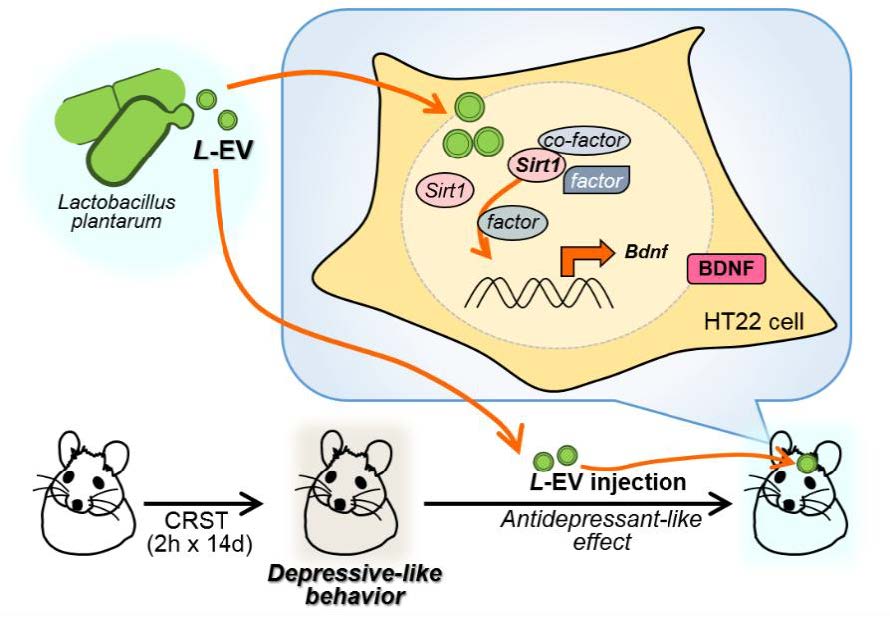Articles
Article Tools
Stats or Metrics
Article
Short Communication
Exp Neurobiol 2019; 28(2): 158-171
Published online April 30, 2019
https://doi.org/10.5607/en.2019.28.2.158
© The Korean Society for Brain and Neural Sciences
Extracellular Vesicles Derived from Lactobacillus plantarum Increase BDNF Expression in Cultured Hippocampal Neurons and Produce Antidepressant-like Effects in Mice
Juli Choi1, Yoon-Keun Kim2, and Pyung-Lim Han1,3*
1Department of Brain and Cognitive Sciences, Ewha Womans University, Seoul 03760, Korea.
2MD Healthcare Inc., Seoul 03923, Korea.
3Department of Chemistry and Nano Science, Ewha Womans University, Seoul 03760, Korea.
Correspondence to: *To whom correspondence should be addressed.
TEL: 82-2-3277-4130, FAX: 82-2-3277-3419
e-mail: plhan@ewha.ac.kr
Abstract
Gut microbiota play a role in regulating mental disorders, but the mechanism by which gut microbiota regulate brain function remains unclear. Gram negative and positive gut bacteria release membrane-derived extracellular vesicles (EVs), which function in microbiota-host intercellular communication. In the present study, we investigated whether
Graphical Abstract

Keywords: Extracellular vesicles,


